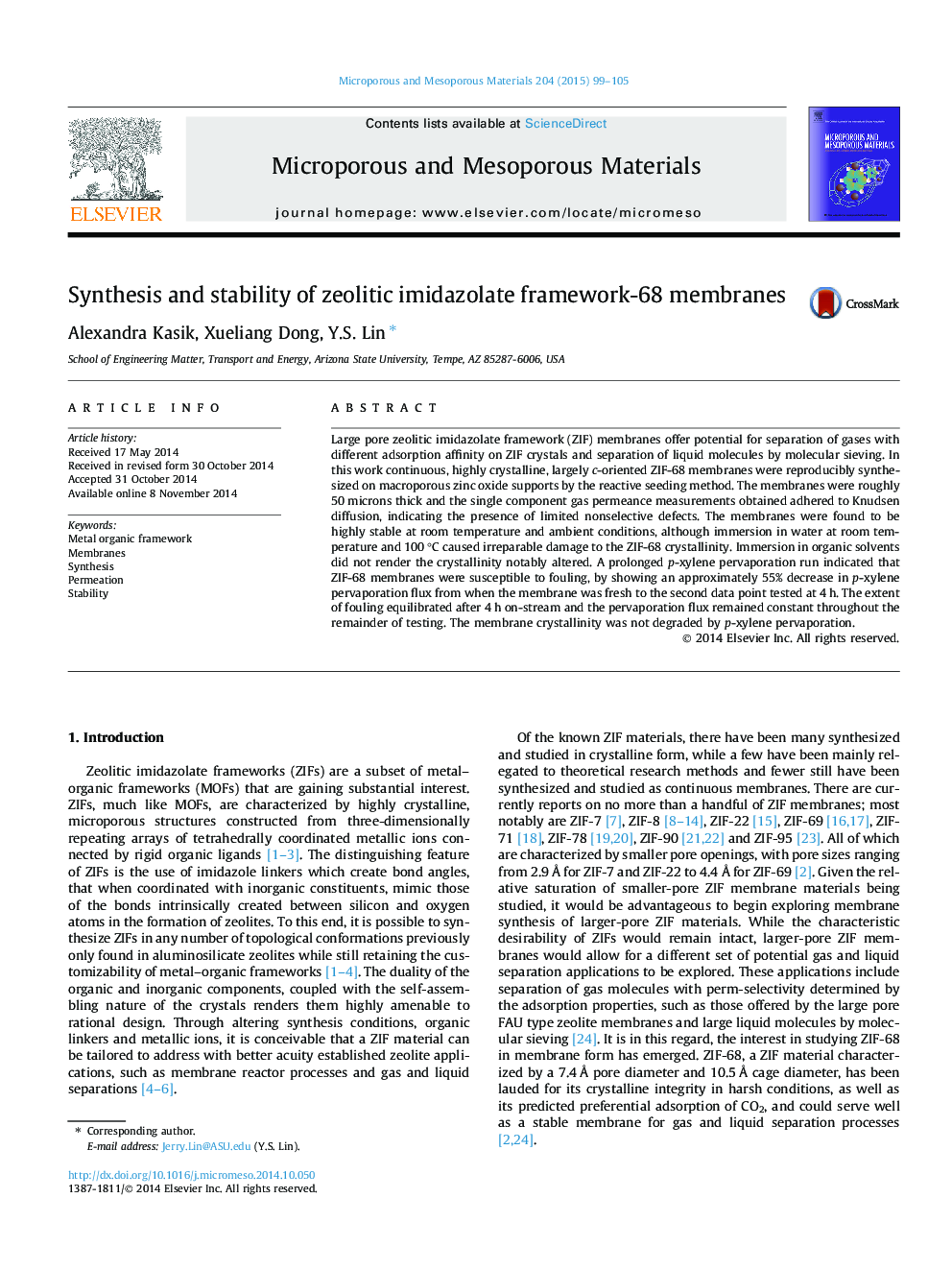| Article ID | Journal | Published Year | Pages | File Type |
|---|---|---|---|---|
| 72738 | Microporous and Mesoporous Materials | 2015 | 7 Pages |
•Defect-free, continuous ZIF-68 membranes were synthesized via reactive seeding.•ZIF-68 membranes had gas permeation behavior that obeyed Knudsen diffusion.•ZIF-68 membranes showed stability in atmospheric conditions and organic solvents.•Immersion in room temperature and boiling water degraded ZIF-68 membranes.•ZIF-68 was susceptible to fouling during p-xylene pervaporation but stabilized.
Large pore zeolitic imidazolate framework (ZIF) membranes offer potential for separation of gases with different adsorption affinity on ZIF crystals and separation of liquid molecules by molecular sieving. In this work continuous, highly crystalline, largely c-oriented ZIF-68 membranes were reproducibly synthesized on macroporous zinc oxide supports by the reactive seeding method. The membranes were roughly 50 microns thick and the single component gas permeance measurements obtained adhered to Knudsen diffusion, indicating the presence of limited nonselective defects. The membranes were found to be highly stable at room temperature and ambient conditions, although immersion in water at room temperature and 100 °C caused irreparable damage to the ZIF-68 crystallinity. Immersion in organic solvents did not render the crystallinity notably altered. A prolonged p-xylene pervaporation run indicated that ZIF-68 membranes were susceptible to fouling, by showing an approximately 55% decrease in p-xylene pervaporation flux from when the membrane was fresh to the second data point tested at 4 h. The extent of fouling equilibrated after 4 h on-stream and the pervaporation flux remained constant throughout the remainder of testing. The membrane crystallinity was not degraded by p-xylene pervaporation.
Graphical abstractFigure optionsDownload full-size imageDownload as PowerPoint slide
